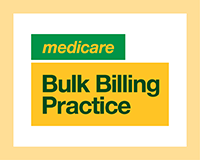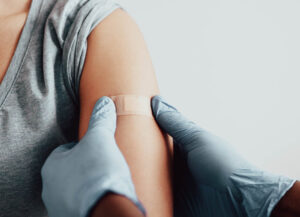National Immunisation Program
Our practice has specially qualified Nurse Immunisers who administer all government funded vaccination programs after completing a pre-vaccination screening process, including:
- Childhood vaccination programs, including catch up schedules
- Annual influenza vaccine clinics
- Adolescents and at-risk groups vaccinations (pregnancy, school program, age related pneumococcal & shingles vaccines, and medically indicated groups)
- COVID-19 vaccination programs
With all vaccinations, we ensure they are immediately uploaded to the Australian Immunisation Record, so you can be assured your vaccination history is always up to date.
Travel Advice
It is important to get relevant travel advice and immunisation before you travel abroad to other countries. While you are likely to have the immunisations needed to live in Australia, there may be other immunisations you require to protect yourself from diseases prevalent at your destination. In some countries you may need protection from diseases such as Typhoid, Hepatitis A, Yellow Fever, Japanese Encephalitis, Rabies or Malaria. You should allow plenty of time prior to your departure date to speak to one of our experienced doctors to find out about the health risks you should be aware of whilst overseas.
Travel vaccinations are not covered by Medicare or the Pharmaceutical Benefits Scheme so you will need to obtain a prescription from your GP and collect from your pharmacy of choice. You will require a follow up appointment to have these administered. It is important that travel vaccinations are not stored in a domestic refrigerator prior to administration, please collect on route to your appointment or deliver to the medical centre prior to your appointment for safe storage. Our practice can provide you with a copy of your vaccination history and your doctor can also prescribe you appropriate medications to take with you on your journey such as anti-malaria tablets.
Yellow Fever Vaccines
Yellow Fever is a potentially fatal disease that is transmitted by mosquitoes in parts of South America and Africa. Immunisation is required for travellers to these parts of the world. All adults and children over the age of 1 must hold an international vaccination certificate if, within six days before arriving in (or returning to) Australia, they have stayed overnight or longer in a declared Yellow Fever endemic country. Travellers should seek medical advice on vaccination for their individual medical circumstances, particularly about the suitability of yellow fever vaccine for infants, pregnant women and those who are immuno-compromised.
Our centre is an approved Yellow Fever vaccination centre. We have Doctors that have completed specialist training to administer Yellow Fever vaccines. If Yellow Fever vaccination is required for your travel, you will have an initial consultation with your Doctor where they will assess that it is safe to have. You will be provided with relevant information about the vaccine and then a consent form must be completed by both yourself and your GP prior to administration. You will require a follow up appointment to have the vaccine administered and to have the compulsory travel documentation and vaccination certificate completed. A single dose of yellow fever vaccine will provide life-long protection against the disease for most people. Travellers should ensure they are vaccinated no less than 10 days before entering the yellow fever risk area, due to protection beginning 10 days after vaccination.
Q Fever Vaccines
Q Fever is a disease that can be spread to humans mainly from cattle, sheep and goats. The germ is spread in the urine, faeces and milk, but birth fluids, the foetus and the placenta are the most dangerous sources. When infected fluids dry out, the germ can remain alive in the dust for years. People can become infected by being splashed with infected fluids, or by breathing in infected dust. People who work with or near animals are most at risk of getting Q Fever, particularly people working at animal processing plants and those around birthing animals. Individuals may be immune to Q Fever if they have previously been vaccinated or infected with Q Fever. Anyone at risk of exposure to Q Fever should see their GP to be tested to ensure protection against the disease.
Dr Cromb has completed additional training and is able to conduct Q Fever testing and vaccination for those who require it. The process involves 3 consultations:
- Initial check to determine prior vaccination by accessing the Australian Q Fever Register and a pathology request for Q Fever antibodies (blood test).
- If the blood test and register were both negative then an intradermal hypersensitivity skin test will be performed.
- Seven (7) days after the skin test is performed, the results are reviewed by the GP. if both the skin test and blood test are negative and there are no other contraindications (e.g. allergy to eggs or the patient is a child), the patient can be vaccinated.








